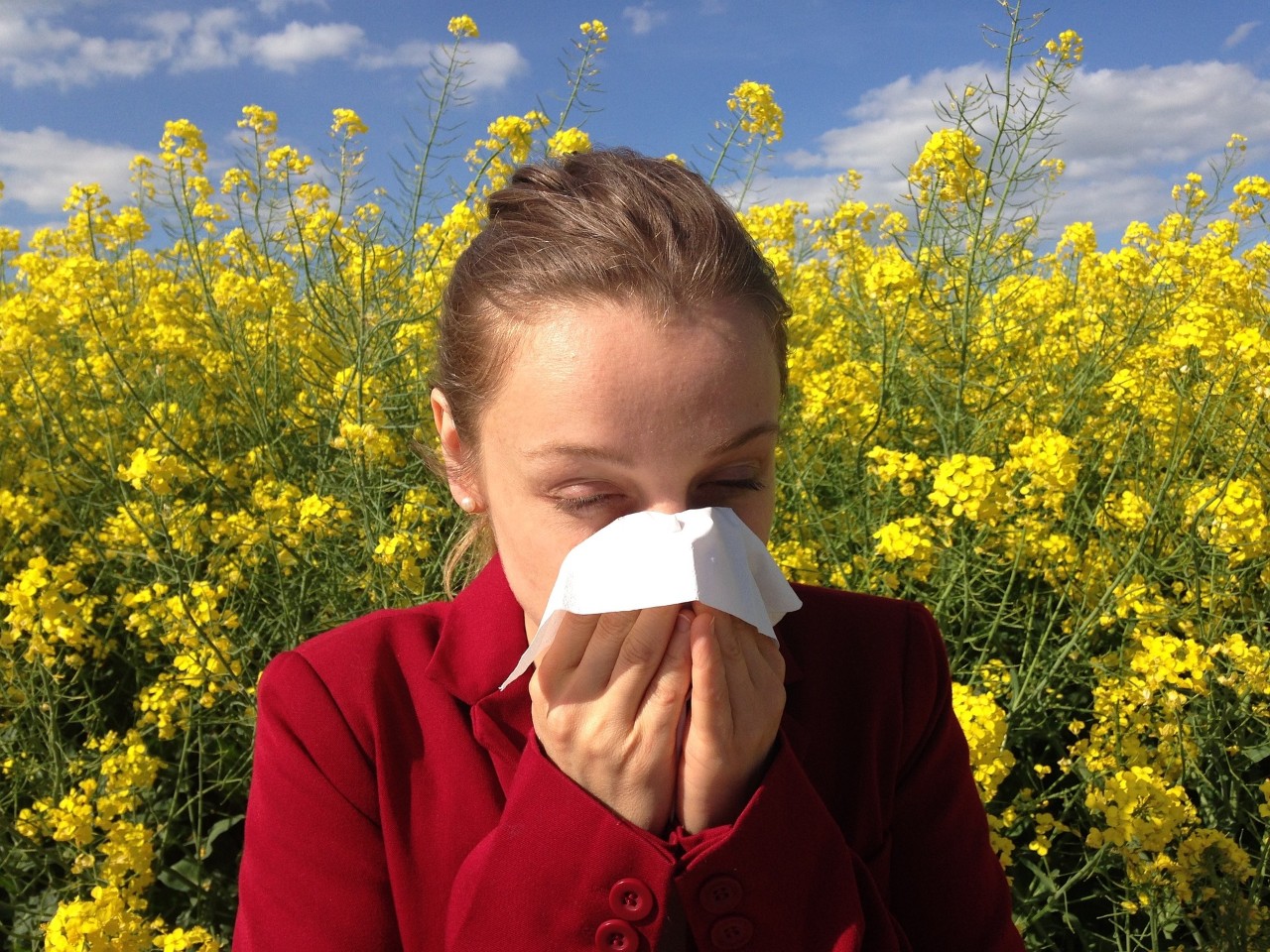
WLWT: Tips to fight off bad allergy symptoms
The University of Cincinnati's Ahmad Sedaghat spoke with WLWT about how Cincinnati's geography tends to make allergy symptoms worse and tips to fight off those symptoms.
"Constantly getting pollen released into the air because our warmer seasons are longer" contributes to worse allergy symptoms in Cincinnati, said Sedaghat, MD, PhD, director of the Division of Rhinology, Allergy and Anterior Skull Base Surgery Otolaryngology, Head & Neck Surgery at the UC College of Medicine. "The second thing is we also have a more humid climate because we're in the Ohio River Valley. So that also not only promotes growth of plants, but also promotes the presence of molds."
While Cincinnati allergy season seems to get worse each year, Sedaghat said there are ways to protect yourself.
"Typically [I] tell people to start with antihistamine and the nasal steroid," Sedaghat said. "Beyond that I say, typically, talk to your physician if you're still struggling beyond that. But in the end, sometimes we do refer to an allergist and say, 'Well, maybe its time to do an allergy shot.'"
Sedaghat added it is key to begin taking medicine before starting to have symptoms. And when coming in from outside, wash your hands or shower to get the pollen off of you to avoid tracking it around your home.
Featured photo at top of woman sneezing/Corina/Pixabay.
Related Stories
WVXU: UC study tests tongue exercises to improve swallowing function after stroke
January 11, 2024
WVXU highlighted a new trial at the University of Cincinnati that will test an at-home tongue endurance exercise to improve patients’ swallowing function after a stroke.
Choir director uses synesthesia to inspire, lead Little Miami High School choir
June 14, 2024
The University of Cincinnati's Daniel Sun was featured in a WLWT story about a local choir teacher with synesthesia, a condition where two senses overlap in the brain.
Tastes so good: Learning to swallow after stroke
August 13, 2024
Quincy, Illinois television station WGEM highlighted a trial at the University of Cincinnati testing an at-home tongue endurance exercise to improve patients’ swallowing function.
HealthDay: Immunotherapy drug did not increase adverse surgery events
September 15, 2022
HealthDay highlighted recent University of Cincinnati research that found administering immunotherapy drug pembrolizumab before surgery for oral cavity cancer did not increase rates of complication during and after surgery.
Four hearing aid breakthroughs to know about
June 9, 2025
In recent years, hearing loss technology has evolved substantially, improving on everything from efficacy to look and feel. Today, even AirPods have a built-in hearing aid feature.
The scientific reason songs get stuck in your head
June 21, 2024
The University of Cincinnati's Steven Gordon was featured in a Prevention article discussing the science behind earworms, when a song gets stuck in your head and you can't get it out.
Fall can be prime time of year for sinus suffering
September 24, 2024
The fall season can be a prime time of year for sinus suffering, but Ahmad Sedaghat, MD, PhD, FACS, said it doesn't have to be that way. He is a professor of otolaryngology in the UC College of Medicine. He is also director of the division of rhinology, allergy and anterior skull base surgery. Sedaghat is an internationally recognized expert on chronic rhinosinusitis and allergies.
How to tell if tooth pain is caused by a sinus infection
November 12, 2024
Sinus infections strike more than 30 million Americans each year. Uncomfortable symptoms include nasal congestion, facial pressure and headaches. Tooth pain actually could be a sign of a sinus infection, too. Experts explain the connection.
WLWT: Tips to fight off bad allergy symptoms
April 18, 2024
The University of Cincinnati's Ahmad Sedaghat spoke with WLWT about how Cincinnati's geography tends to make allergy symptoms worse and tips to fight off those symptoms.
WVXU: FDA says decongestant in over-the-counter cold medicines doesn't work
October 4, 2023
The University of Cincinnati's Ahmad Sedaghat, MD, PhD, and Michael Hegener, PharmD, joined WVXU's Cincinnati Edition to discuss the recent FDA announcement that an ingredient found in many over-the-counter cold medicine oral tablets does not help relieve congestion.
